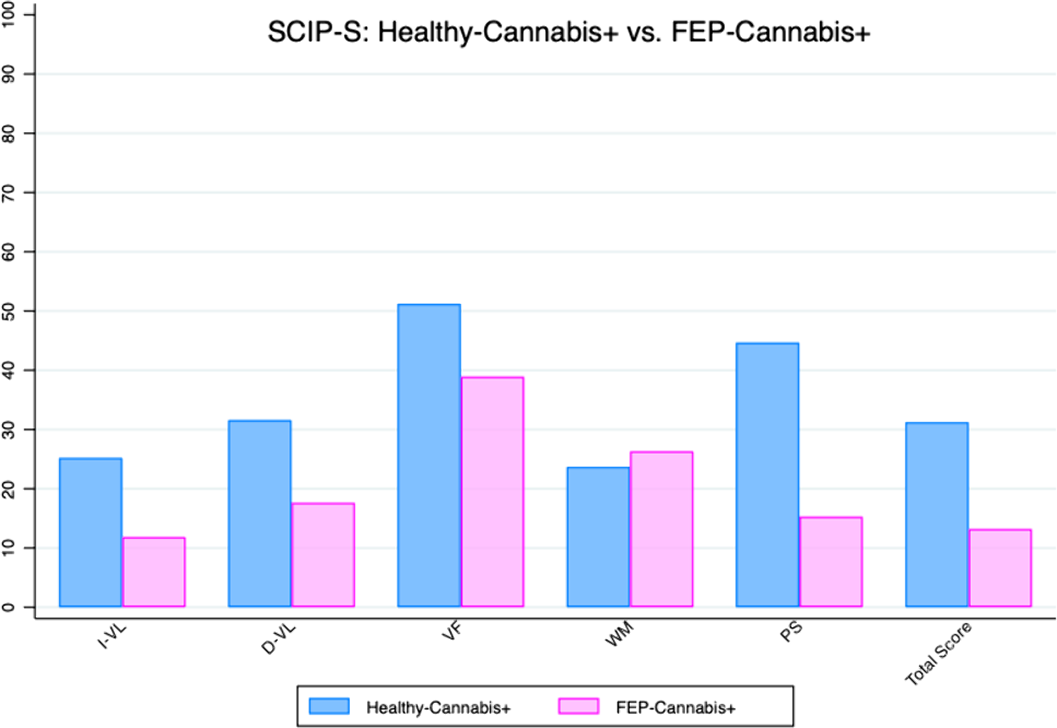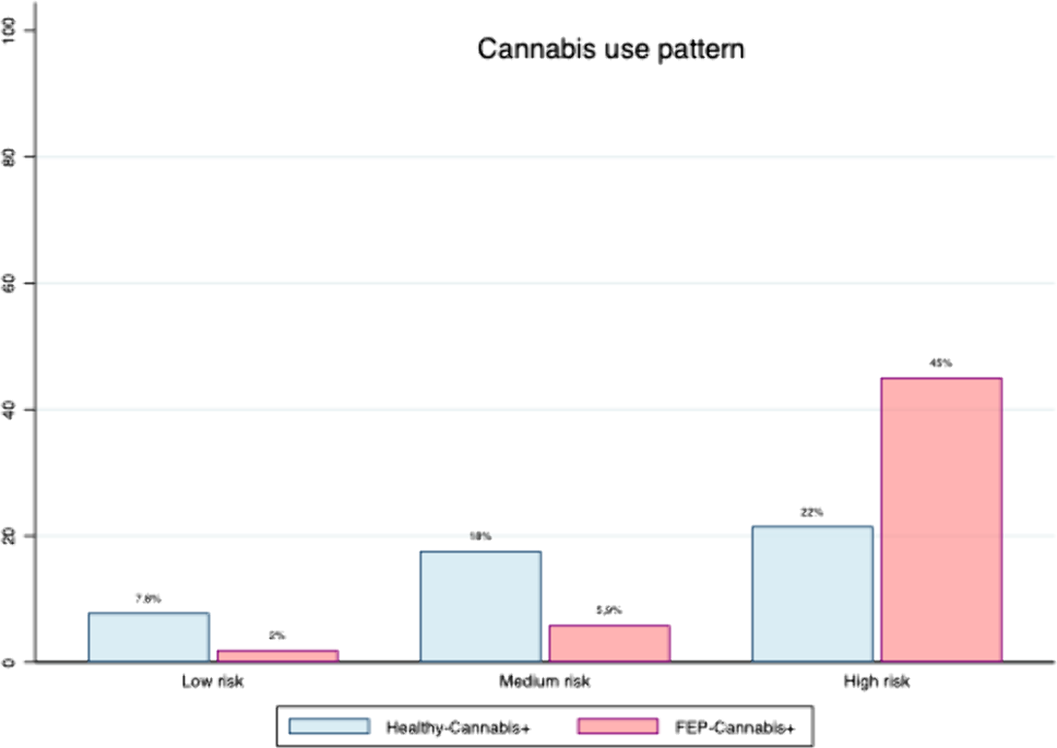No CrossRef data available.
Article contents
Cognitive impairment in first psychotic episodes: The role of cannabis
Published online by Cambridge University Press: 13 August 2021
Abstract
The role of cannabis on cognitive impairment in first-episode psychosis (FEP) is becoming more important, with multiple investigations on this regard, with heterogeneous results due to different methodologies.
To evaluate the cognitive profile in patients who suffer a FEP, analyzing the potential effect of cannabis.
We present the preliminar results of a cross-sectional case-control study about the effect of cannabis on cognition, in patients suffering a FEP. We recruited a total of 41 FEP during the last two years. We investigated the theorical differences between those who were cannabis users (FEP-Cannabis+)(n=28) and not cannabis users (FEP-Cannabis-)(n=13). We included a control group with healthy subjects who were cannabis users (Healthy-Cannabis+)(n=24).Sociodemographic and clinical questionnaire was completed. The Screening Scale to evaluate Cognitive Impairment in Psychiatry(SCIP-S) and the Cannabis Abuse Screening Test (CAST) were used. The consumption pattern was also evaluated.
In this study, cognitive impairment was found in FEP-Cannabis+,when compared with Healthy-Cannabis+.The most affected areas were immediate verbal learning (I-VL), delayed verbal learning (D-VL), processing speed (PS), and total score (TS). Significant differences were also observed in the cognitive profile of patients suffering FEP depending on their use of cannabis. FEP-Cannabis+) showed lower scores in PS, I-VL and TS.

Although several prognostic factors have been identified in FEP, to date there are no reliable markers for predicting the possible evolution of high-risk mental states to a FEP. More investigations are necessary in order to elucidate the role of cannabis in the cognitive impairment.
No significant relationships.
Keywords
- Type
- Abstract
- Information
- European Psychiatry , Volume 64 , Special Issue S1: Abstracts of the 29th European Congress of Psychiatry , April 2021 , pp. S813 - S814
- Creative Commons
- This is an Open Access article, distributed under the terms of the Creative Commons Attribution licence (http://creativecommons.org/licenses/by/4.0/), which permits unrestricted re-use, distribution, and reproduction in any medium, provided the original work is properly cited.
- Copyright
- © The Author(s), 2021. Published by Cambridge University Press on behalf of the European Psychiatric Association



Comments
No Comments have been published for this article.